Mübeccel Akdiş: “Immunology remains a frontier science with numerous unexplored areas and unanswered questions”

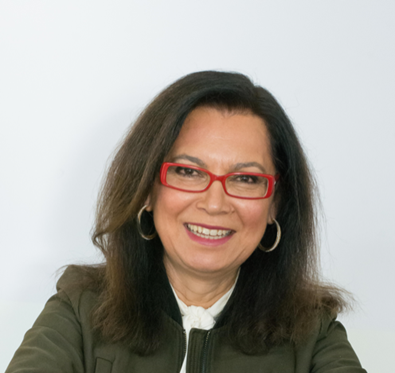
Why did you choose to become a scientist?
I pursued a career in science driven by an innate curiosity and a desire to contribute to the advancement of knowledge. My journey began as a medical doctor, practicing for several years before transitioning to pursue a PhD in Immunology. This decision was influenced by a profound interest in scientific discovery, reminiscent of Carl Sagan's sentiment that “something incredible was waiting to be discovered somewhere”. My passion for science was cultivated early on, spending considerable time in my hometown's public library during my formative years. The pivotal moment in my scientific career came when I commenced my doctoral studies under the mentorship of Kurt Blaser, a respected figure in the field of immunology.
What are you the most passionate about in immunology? How did you choose this field of study?
My passion for immunology stems from its profound impact on human and animal health, and the vast potential it holds for improving patient outcomes. I view my work in this field as a unique opportunity to bridge the gap between scientific research and clinical application. The ubiquitous nature of the immune system in biological processes makes immunology a particularly compelling area of study. It's involved in nearly every medical condition, from infectious diseases to autoimmune disorders, cancer, and even seemingly unrelated conditions. This pervasiveness underscores the field's importance and the breadth of its potential applications. Moreover, despite significant advancements, immunology remains a frontier science with numerous unexplored areas and unanswered questions. This combination of established knowledge and uncharted territory creates an exciting research landscape, offering ample opportunities for groundbreaking discoveries that could revolutionize medical treatments. My choice to specialize in immunology was driven by this potent mix of clinical relevance, scientific challenge, and the potential for transformative breakthroughs. It allows me to pursue my scientific curiosity while maintaining a clear connection to improving patient care, aligning perfectly with my background in medicine and my aspirations as a researcher.
What kind of prejudices, if any, did you have to face as a woman scientist? What helped you to overcome them?
I was born in Türkiye, the third daughter in a family of four girls, raised by a resilient mother. Despite the conservative societal norms prevalent at the time, I was privileged to have parents who prioritized and supported our pursuit of higher education. My eldest sister's experiences as a university student and later as a teacher in a remote town provided valuable insights into the challenges faced by women in academia and professional settings. My own academic journey benefited from the path my sister had forged and the progressive atmosphere of the 1970s, a period marked by rapid modernization in Türkiye. This context afforded me relative ease in navigating the academic landscape. Contrary to what might be expected, my gender did not present significant obstacles in my career as a female scientist. This experience underscores the importance of familial support and societal progress in advancing gender equality in education and professional fields.
What advice would you give to your younger self at the start of your career?
While I initially considered the possibility of commencing my PhD studies at an earlier stage, I now recognize the significant value of my experience as a physician in providing me with extensive knowledge of human biology and diseases. This clinical background has proven to be an invaluable asset to my research pursuits. Moving forward, I would recommend supplementing this foundation with advanced studies in chemistry, biochemistry, bioinformatics, and evolutionary biology. These additional disciplines would enhance my ability to contribute meaningfully to the field and broaden the scope of my research capabilities.
Did you ever doubt your abilities as a scientist? If so, how did you handle these feelings?
Due to my medical background, I initially faced challenges in the laboratory setting, particularly regarding biological concepts and practical lab work. These areas were less familiar to me compared to my medical expertise. To overcome these obstacles, I dedicated myself to working longer hours and putting in extra effort. This commitment allowed me to bridge the knowledge gap and improve my laboratory skills, ensuring I could contribute effectively to the team and research objectives.
What do you consider your biggest achievement so far?
My main research area was investigating the mechanisms of allergen tolerance in human allergen-specific T and B cells. In 2003, I established the Immune Dermatology Group at the Swiss Institute of Allergy and Asthma Research (SIAF) and subsequently habilitated at the University of Zurich in 2005. My laboratory is renowned for its cutting-edge research utilizing single-cell sequencing technologies to elucidate the mechanisms of immune tolerance to allergens and conduct in-depth characterization of regulatory and effector B cells. My groundbreaking work has led to several significant discoveries in the field, including the identification of human regulatory B cells (Bregs), contributions to the discovery of human regulatory T cells (Tregs), and contributions to the discovery of human innate lymphoid regulatory cells (ILCregs). These findings have significantly advanced our understanding of immune regulation in allergic diseases.
Under my leadership, the laboratory has become one of the world's leading centres for human B cell biology research. I supervised and mentored the next generation of researchers, successfully guiding numerous PhD students to completion. For the past 19 years, I have been an integral part of the organizing committee for the World Immune Regulation Meeting, a prestigious conference in the field of immunology. My expertise and contributions to the field have been further recognized through my appointment as an Editor for the upcoming 10th edition of Middleton's Allergy, a seminal textbook in the discipline of allergy and immunology. My group's research continues to push the boundaries of our understanding of immune tolerance mechanisms, with potential implications for the development of novel therapeutic approaches in allergic diseases.
Beside your scientific interests, what are your personal interests?
My passion for reading is particularly focused on science fiction, a genre that explores imaginative technological and societal futures through compelling narratives. Cooking is another significant interest of mine, where I enjoy exploring flavours, techniques, and culinary creativity. As a devoted cat owner with three feline companions, I am deeply committed to animal welfare. My aspiration is to create a shelter that provides sanctuary and care for abandoned animals, offering them hope, protection, and a chance for a loving home.
What advice would you give to young women who want to pursue the same career as you?
Scientific research transcends traditional professional boundaries, representing a profound commitment to intellectual discovery and societal advancement. Successful scientists distinguish themselves through strategic time management, innovative problem-solving, and an unwavering dedication to expanding human knowledge. Scientific achievement emerges not merely from technical skill, but from a holistic commitment to pushing the boundaries of human understanding. Researchers who integrate professional excellence with genuine passion are uniquely positioned to generate transformative discoveries. So, science is not a job, it is a lifestyle. Scientists can create miracles with effective time management and inventively improve our capabilities to meet our needs. The most important thing is to believe in yourself and continue with your endeavours. Passion and perseverance are the two magic words for success.
The author drew from a past interview she gave the Swiss Young Immunology Society for some of questions and answers on this post.
Lab webpage: https://www.siaf.uzh.ch/dermatology.html
Two recent/key papers:
Satitsuksanoa P, van de Veen W, Tan G, Lopez JF, Wirz O, Jansen K, Sokolowska M, Mirer D, Globinska A, Boonpiyathad T, Schneider SR, Barletta E, Spits H, Chang I, Babayev H, Tahralı İ, Deniz G, Yücel EÖ, Kıykım A, Boyd SD, Akdis CA, Nadeau K, Akdis M. Allergen-specific B cell responses in oral immunotherapy-induced desensitization, remission, and natural outgrowth in cow's milk allergy. Allergy. 2024 Jul 11. doi: 10.1111/all.16220. Online ahead of print. PMID: 38989779.
https://doi.org/10.1111/all.16220
Satitsuksanoa P, Iwasaki S, Boersma J, Imam MB, Schneider SR, Chang I, van de Veen W, Akdis M. B cells: The many facets of B cells in allergic diseases. J Allergy Clin Immunol. 2023 Sep;152(3):567-581. doi: 10.1016/j.jaci.2023.05.011. Epub 2023 May 27. PMID: 37247640 Review.
https://pubmed.ncbi.nlm.nih.gov/37247640
More information on the FEBS Datta Lecture at the FEBS Congress:
Mübeccel Akdiş will deliver the FEBS Datta Lecture at the 49th FEBS Congress in Istanbul, Türkiye, on Monday 7 July 2025 on “Mechanisms of food allergy and the role of allergen-specific B cells”.
Photo by Nigel Hoare on Unsplash.
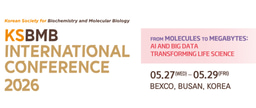
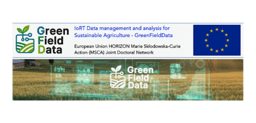
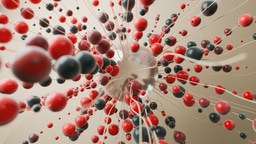

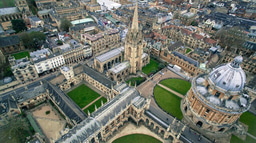
Join the FEBS Network today
Joining the FEBS Network’s molecular life sciences community enables you to access special content on the site, present your profile, 'follow' contributors, 'comment' on and 'like' content, post your own content, and set up a tailored email digest for updates.
Your post is truly inspiring Mübeccel!
I especially loved your perspective that "science is not a job, it's a lifestyle." It's this kind of dedication that has made your lab at SIAF a world-leading center for human B cell biology research.
The FEBS community eagerly awaits your plenary lecture at the FEBS 2025 Istanbul meeting. Your talk will undoubtedly be one of the highlights of our Congress